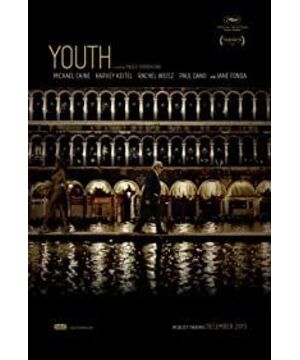It is almost certain that Sorrentino is a reader of "Devil Mountain", not only because this new work called "Youth" (I think it is more appropriate to translate "youth" than "young vigorous") is the same as "Magic Mountain." Most of the plot takes place in a nursing home/hotel in Davos, Switzerland, because this movie explores the core topic of Thomas Mann’s novel: time. The film uses two hours of lens language to allow a large number of complex themes such as time, art, music, life, love and sex, desire and fear to circulate between the beautiful rural scenery and modern hotels in Switzerland, even if some of the themes are just dots. So far (such as "desire and fear", which seems to run through the whole film, but is actually only mentioned once by the actor played by Paul Dano), but it is integrated with other themes, not to repeat it. If you have the heart, you can do it. The key is to cut into another level of meaning of the movie text. Watching this film, I really feel a bit of reading the novels of European intellectuals before the war.
"Magic Mountain" may be one of the source texts of "Youth", if so, the latter should be a deliberate departure from the content and structure of Man's novels (Kontrafaktur). The protagonist of "Magic Mountain", Hans Kastopp, went up the mountain to visit his cousin in the nursing home. He originally planned to stay for only three weeks, but he was determined to have lung disease. Served in the army, died on the battlefield (out of ten). In other words, "Magic Mountain" tells the process of a youth from life to death, and the protagonist Fred Barringer of "Youth" is an old man who has gained a new life. However, the "view of time" of the two works is similar. "Magic Mountain" proposes that the idle time in the nursing home flies quickly and slowly. Slow is because the life of self-cultivation is empty and monotonous, which makes it "long and boring" for a moment or an hour to extend endlessly (Langeweile in German is really a very appropriate word); this is the microcosm of the flow of time, if the macro is human In a lifetime, those empty and monotonous time periods can be morbidly compressed or even vanished, because they have no content to "enrich themselves" and are empty and useless. Therefore, when Kastop was only 31 years old when he went down the mountain, he became lifeless, like an old man who has passed his life. At the same time, his three weeks on the mountain extended into seven years, and countless years passed before turning the pages. It took seven years and was not ready to go down the mountain. Seven years lacked weight because of emptiness.
Fred Ballinger, the protagonist of "Youth", is a musician who claims to "only understand music" and never loves or understands life. It can be said that Fred lives in music and art. He replaced life with music. The countless love affairs in his life are "experiments"-experiments on his most disdainful emotions, made in the laboratory. Emotionally capture the necessary inspiration for music creation, and make his decades of artistic life become false and cynical. With a flick of his fingers, the youth who used to be anxiously pursuing young and beautiful sopranos have become elders who have never forgotten them. There are still only the two shy romances before becoming a composer. What about the life in the meantime? It was probably all folded into a piece of music composed by Fred himself. "Magic Mountain" also has an interesting exploration of music: music can make a few hours full and beneficial, "it divides the time into segments, fills them up separately, so that there is finally something inside [...] Right now, this unremarkable ordinary piece takes about seven minutes to play, doesn’t it? These seven minutes are self-contained, with a beginning and an end; they reveal themselves, avoiding unknowingly disappearing into eternity. Time.” On the other hand, although music seems to give an empty time period of content and meaning, this content and meaning are also impractical and spectacle. The emotional fluctuations experienced by listening to music can be Said to be abducted by the emotional fluctuations of the composer and performer, and thus sinking into a perceptual whirlpool that does not belong to him, paralyzed and hypnotized, and hindered from action and progress.
So Nietzsche believes that good music "has a race rather than a person's ingenuity" ("Wagner Incident"). Fred's "Simple Movement" is undoubtedly "personal ingenuity". He does not allow other soprano singers to sing this song because it was not created for performance to the public. It is a diary-like work. I wrote it to myself, the author and Melanie’s beginning and endless love is carried on this movement and sealed in the tin of time. Such a work can easily induce listeners with its delicate and beautiful timbre and strong emotional swirl, but listeners cannot and should not decrypt all the information it carries. In other words, this is a work that "defies" listeners. Reid is a selfish artist who "defies" his audience. The composer is detached from his life while detaching from the audience. His years in a piece of music are folded and passed without leaving a trace, flying lightly between indulgent lust and lack of emotion. Fred lived to be more than eighty years old, but he still didn't have a real life, and he didn't know why he was in his twilight years (the movie uses a parachutist who doesn't know how to land here).
Before leaving the hotel, the doctor said something to Fred: The composer is strong, and even the prostate he has been worried about is no problem; but from then on, his body will gradually become ill. Fred is about to leave the emptiness represented by the sanatorium and walk into life, opening his closed and selfish music to the audience-"Simple Movement" dedicated to himself and Melanie will be interpreted by another soprano , Dedicated to the queen and her husband, thus gaining a new meaning beyond oneself and taking the first step towards popular art. For the composer himself, this piece of music written when he was young is no longer just to maintain the sweetness of the newlywed Yaner, but also to the deep and sadness of the late years. There are few in Fred's life. One of the relationships can finally come to a successful conclusion.
The "youth" outside the hotel can refer to the vigorous vitality of the world, but it can also refer to Fred's own second youth: in the reprimand of his daughter, he realized that he had never lived before and committed suicide for art. The old friend saw his shadow in him, determined to leave the emptiness of pure land and start a new and true life. Sijun makes people old, and he might really be getting old from now on.
View more about Youth reviews











